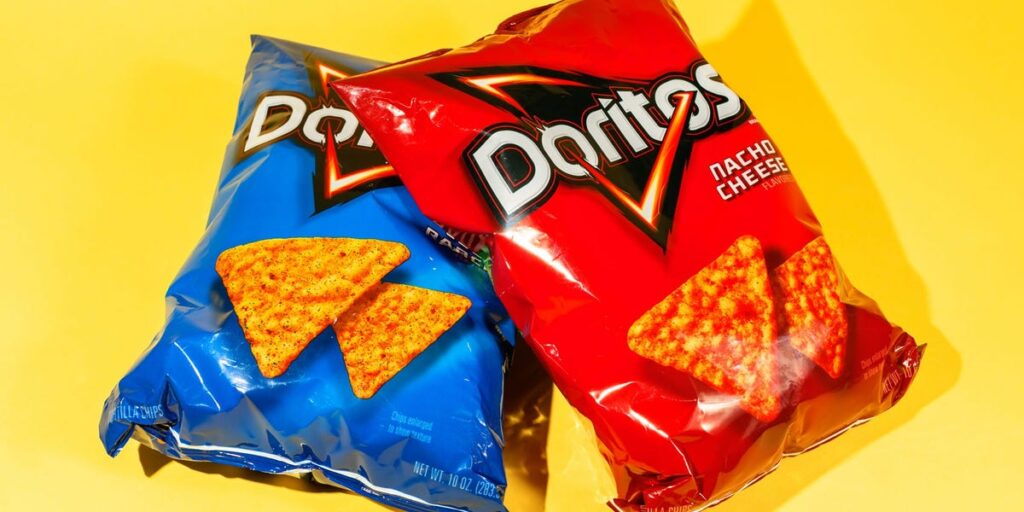- PepsiCo Inc.'s CEO said Thursday that rising snack food prices may have finally peaked.
- Ramon Laguarta said even his higher-income customers have felt the effects of years of food price inflation.
- It's the latest sign that high grocery store prices may be on the way to some relief.
The cost of snack foods may finally be at a tipping point after years of price hikes, the parent company of Doritos and Cheetos announced Thursday.
“Do you think Frito-Lay's prices are too high, given the price increases over the last few years?” Jefferies analyst Kaumil Gajrawala asked PepsiCo CEO Ramon Laguarta during a question-and-answer session after the company's earnings report on Thursday. Frito-Lay is the unit that sells packaged foods such as Cheetos and Lay's potato chips.
Laguarta responded that some products may need to be repriced to entice consumers to buy them again.
“Certainly after three or four years of significant inflation there is value to be given back to consumers,” he said.
One big reason is that sales volumes of food and snack products at PepsiCo's Frito-Lay and Quaker Foods North American businesses have been declining over the past few quarters.
As food inflation has risen over the past few years, companies like PepsiCo have been able to push through price increases to retailers and consumers, and even more so. Last year, for example, the company's revenue grew 9% on an organic basis. The amount of “ready to eat” food sold fell 2%.
But comments from PepsiCo's CEO suggest those days may finally be over.
This will come as a relief to consumers struggling with overall inflation: When Instacart user Chrisman White tried to reorder groceries from five years ago, the items that had increased in price the most were a 12-pack of Pepsi and a bag of Pedigree dog food.
Later on the call, Laguarta said it's not just customers on a budget who are struggling with high prices, saying higher-income consumers are also looking to save money on food.
“I think this desire for values, or being more value-conscious, is impacting every household in America,” he added.
Food inflation has been rising steadily in recent months. The latest inflation figures released on Thursday showed the food component of the Consumer Price Index rose 2.2 percent in June from a year earlier.
PepsiCo is one of the world's largest food companies, but it's not the only one raising prices.
As the White House rails against grocers for ripping off American families' wallets, executives at major retailers have been quick to point out the role national brands play in driving up the prices of goods on their shelves.
“They're clearly profitable and so we think they have room to invest further,” said Rodney McMullen, CEO of Kroger, the largest U.S. specialty grocery retailer among major food brands.
McMullen told investors last month that he expects to see more discounting from national brands this year.
It may already be happening: John David Rainey, chief financial officer of Walmart, the largest US grocer, said the company's discounts are “primarily vendor-funded,” meaning the discounts shoppers see are being passed on by suppliers rather than Walmart incurring the costs itself.
And when national brands see price cuts on Bullseye's private-label products, “they help us lower prices across their own brand portfolios,” Target Chief Growth Officer Christina Hennington said.
Of course, national brands have boasted strong profits in recent years, which suggests they are now in a position to offer discounts and promotions without incurring large costs.

